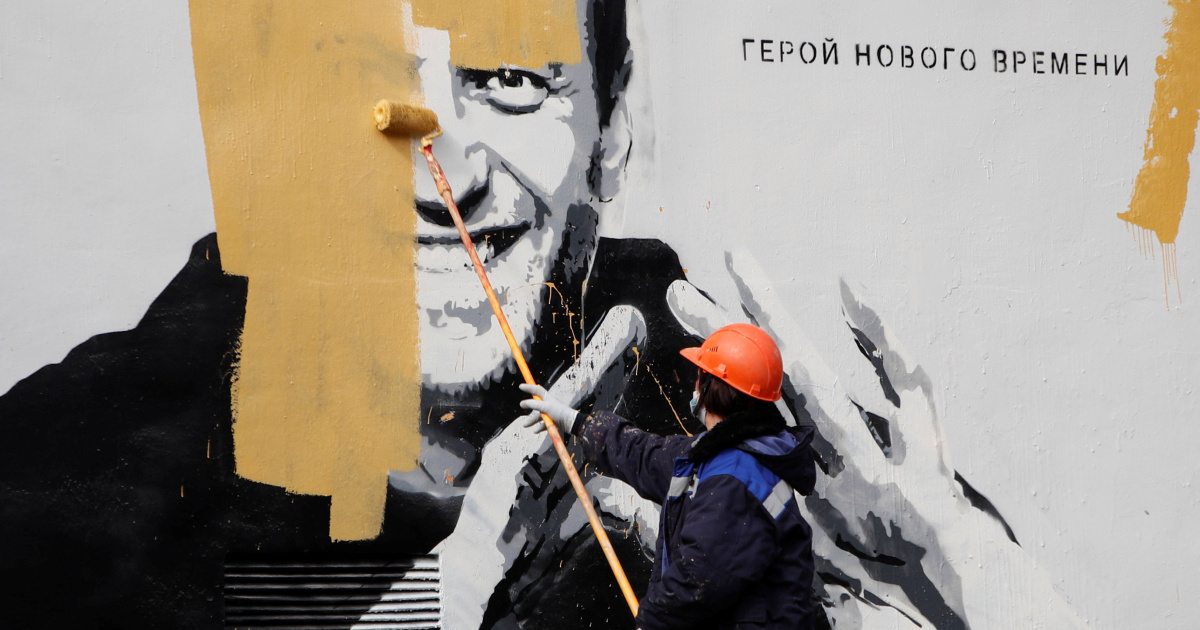Authorities move to bar access to websites linked to opposition leader as September parliamentary election nears.
Russian authorities have blocked access to jailed Kremlin critic Alexei Navalny’s website ahead of an upcoming parliamentary poll, along with those of 48 other individuals and organisations affiliated with him.
Monday’s move came after a Russian court last month approved a prosecutor’s request to declare organisations linked to Navalny as “extremist”, in effect outlawing them and preventing his allies from taking part in September’s election to the State Duma lower house.
Russian Internet regulator Roskomnadzor said in a statement to Reuters it had moved to block navalny.com, the banned movement’s main website, and others inside Russia, at the request of the prosecutor general.
It said the sites helped the movements covered by the court ban to distribute propaganda and continue their illegal activities.
Condemning the move, Navalny’s team said on social media it expected the authorities would soon target its so-called smart voting website, which advises people how to vote tactically to try to unseat candidates from the ruling United Russia party.
“(They) have decided to completely wipe us out of the Internet,” Navalny’s associate Maria Pevchikh tweeted.
Leonid Volkov, a Navalny ally, said he and others would soon explain what people should do to try to avoid website blocks.
Kremlin cracks down on opponents
Navalny, 44, is President Vladimir Putin’s most prominent domestic critic.
He is currently serving a two-and-a-half-year jail sentence for alleged parole violations relating to a 2014 embezzlement conviction he dismisses as fabricated.
He was arrested in January upon his return to Russia from Germany, where he spent five months recovering from a nerve agent poisoning that he blames on the Kremlin.
His jailing has increased strains in Russia’s relations with Western powers, including the United States, United Kingdom and European Union, which have called for him to be freed.
Navalny’s imprisonment also sparked a wave of mass protests earlier this year across Russia’s 11 time zones, in what appeared to be a major challenge for the Kremlin.
The authorities responded with mass arrests of demonstrators and the criminal prosecution of Navalny’s closest associates.
In recent months, the Kremlin has also upped pressure on opposition supporters, independent journalists and human rights activists in Russia ahead of the upcoming September poll.
The vote is widely seen as an important part of Putin’s efforts to cement his rule before the 2024 presidential election.
The 68-year-old Russian leader, who has been in power for more than 20 years, pushed through constitutional changes last year that would potentially allow him to hold onto power until 2036.

